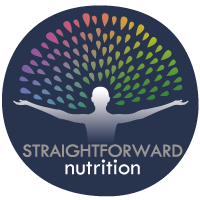When Should You Seek Support for Eating Disorder Recovery?
How do you know when you should seek support for eating disorder recovery? I have been thinking about this question for a while. If you have gotten a diagnosis of an eating disorder, seems like the most obvious time.
But it is not always easy to get a diagnosis. If you don’t meet the criteria, you may think that things are "fine", or that you’re not “sick enough” and deserve support.
If you are feeling like your whole life is consumed by thinking about food and obsessing about your appearance, then it is time to get some support with your relationship with food eating and your body.
We live in a culture that sanctions disordered eating
Given that so much of our culture has normalised what is actually pretty disordered (due to fatphobia and weight stigma), this seemingly easy question is a bit more complex than expected.
One thing which is common is the idea that people who struggle with food and body image looks a certain way (young, thin, white and emaciated). This is not true at all.
People of all shapes and sizes and ages can struggle with many of (often normalised) disordered eating behaviours.
When I was in the midst of my own struggles, I kept searching for the “right diet” that would help me gain control over my eating. I tried all sorts. From hypnotherapy CD for weight loss, to Slim-fast shakes, Unislim (like WeightWatchers) and some other dubious things.
I eventually felt so out of control that I did reach out to a local dietitian but never got started with sessions. I also considered therapy around this time but again it never happened.
Life seemed to just evolve around food, dieting and binge eating. Feeling bloated, uncomfortable and down right miserable.
With support your disordered eating can get better
Around this time I also read lots of books, and eventually I must somehow made my way from the diet books to some type of non-diet approach, but I can’t remember any one specific title. However I did have an awakening and realised HOW MUCH of my self-worth I had tied up with the scales. It is incredible just how much power we can hand over to this metal subject…!
Eventually I got off the scales, which was the starting point for me (it might be something else for you) and began the journey of making peace with food, eating and my body.
A journey that will always be ongoing, however I am happy to say that I am now in a place where it sometimes feels alien to think back to how bad and painful things actually were.
I was never officially diagnosed with an eating disorder, but I may have met the criteria for binge eating disorder (BED) at some point when things were at its worst. But this was before 2013 and BED was not an official diagnose in the DSM-V at that time anyway.
Because what actually is dis-ordered eating behaviours but that our society has “normalised” when in comes to food and eating, I think it might be worth pointing them out.
It is also worth nothing that disordered eating exists on a spectrum and you may experience some of these and not all of them. And things might not be so severe that it ticks all the boxes for an official diagnosis, it doesn’t matter, you still deserve to be living your life free of food and body obsession.
Behaviours that are disordered eating or an eating disorder:
Constantly thinking about food 24/7
Being on and off diets
Weighing yourself daily and the scale dictating your mood and how the day goes
Weighing foods to portion control
Bingeing when you come off your diet / food restriction
Feeling out of control around food and not trusting yourself and your body
Not keeping certain foods in the house but still bingeing on them
Feeling overly anxious if your food is not “clean” or whole foods only
Exercising for the sole reason to burn calories and to compensate for food intake
Not going out with friend and family because of food anxiety
Avoiding events because of how you feel about your body
Not doing things because you worry about what others think about your body
It really doesn’t have to be this way! Things CAN and WILL get better, and often we need a little support from someone else to get us there.If this is where you are currently at it might be difficult to imagine that things CAN be different and get better. What waits on the other side of food and body concerns? Food Freedom, Body Trust 😊
Healing your disordered eating can enable you to:
Say yes to lunches and meals out with friends
Not being worried about travelling because you are comfortable eating whatever is on offer
Wearing clothes that makes you feel good in the body you have now
Being fully present with the people you love
Having more brain space to engage in hobbies and relationships that has meaning and value to you
Having more energy and feeling less anxious
Food freedom means having greater flexibility with food and eating and body trust means that we can trust ourselves and our bodies and to care for ourselves in a nourishing and supportive ways.
This is what I wish for you too.
Ready to explore what doing the work to take you there can look like? Between where you are now and where you can potentially get to there are steps and sometimes having some guidance and support alongside you on this journey can be helpful.

